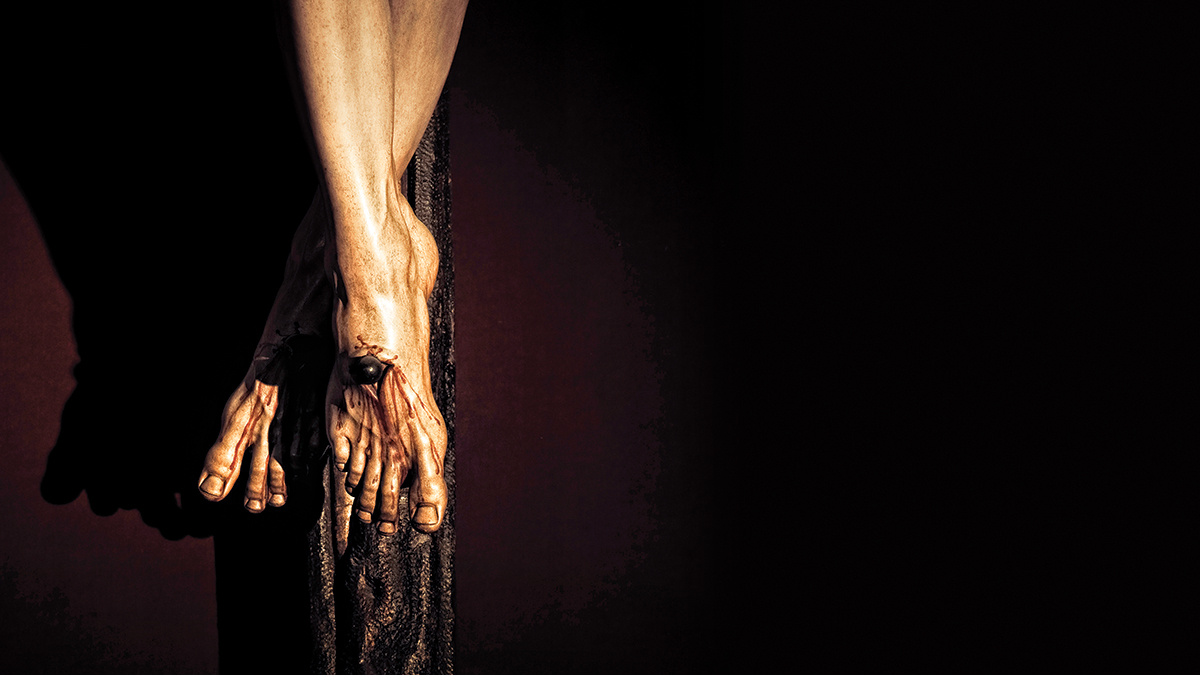Jesus was naked on the cross. They never show that in the church-authorised depictions.
Some historians even suggest that crucifixion victims had their feet nailed so that the legs were splayed open. No Catholic statutory here—ankles politely folded, marble loincloth captured exquisitely, blood bleached out. The reality was grotesque. Vulgar. Cruelly calculated to maximise shame as well as pain. Go ahead and Google images of ISIS victims being crucified if you have the stomach for it—it’s not the kind of scene anyone would want to miniaturise and hang as a pendant around their neck.
Many have turned away from the grisly spectacle of Jesus’ crucifixion in dismay, disbelief or disgust. My Muslim friends, for example, refuse to accept that God would allow a holy, sinless prophet to suffer and die in such a vile manner. The Qur’an’s claim that Jesus’ ordeal was a divine illusion while the real Jesus was whisked away safely to heaven is much more palatable and consistent with their view; doesn’t God protect and honour His messengers?
Have we Christians failed to recognise the radical nature of the jagged descent Jesus chose to make?
Who, being in very nature God, did not consider equality with God something to be used to his own advantage; rather, he made himself nothing by taking the very nature of a servant, being made in human likeness. And being found in appearance as a man, he humbled himself by becoming obedient to death—even death on a cross! (Philippians 2:6–8).
God on a cross. It’s all backwards. Upside-down. It points to an altogether different order in the universe than what we might have expected.
It’s an order we catch a glimpse of when unarmed protesters for peace or justice allow themselves to be beaten, hosed, tear-gassed and arrested without retaliation. Suddenly the righteousness of their cause is brought into sharp focus.
It’s an order we catch a glimpse of in the face of an 80-year-old unmarried woman who, decades earlier, moved from a comfortable suburban existence to a refugee camp on the Thai–Myanmar border, educating thousands of minority children through a lifetime of service.
It’s an order we catch a glimpse of in the lives of Christian families who open their hearts to children with health issues, mental trauma or disabilities—adopted from disadvantaged circumstances where their chances of being loved and valued are slim.
“For when I am weak, then I am strong,” wrote the apostle Paul. This highly trained, proud and passionate defender of the Jewish faith was brought low by divine rebuke, remorse and blindness. God couldn’t use Paul until he’d been humbled. It’s the same story with the spoiled dreamer, Joseph; or Moses, with all his advantages of Egyptian royal education and privilege. This human clay had to be pummelled and stretched, folded and turned, before God could shape it into the vessel He needed.
It’s hard to be humbled. The call to sacrifice, submit or suffer grates on our ears. But the path to new life has been laid out clearly for us—its signpost is marked with the bloodstains of a naked, tortured Jesus; our humble God whose concern in the midst of His suffering was not Himself, but the welfare of His followers and the forgiveness of His enemies. He was clear about His direction: “For even the Son of Man did not come to be served, but to serve, and to give his life as a ransom for many.” Before you decide what your next step should be, take a moment—pause at the cross.






